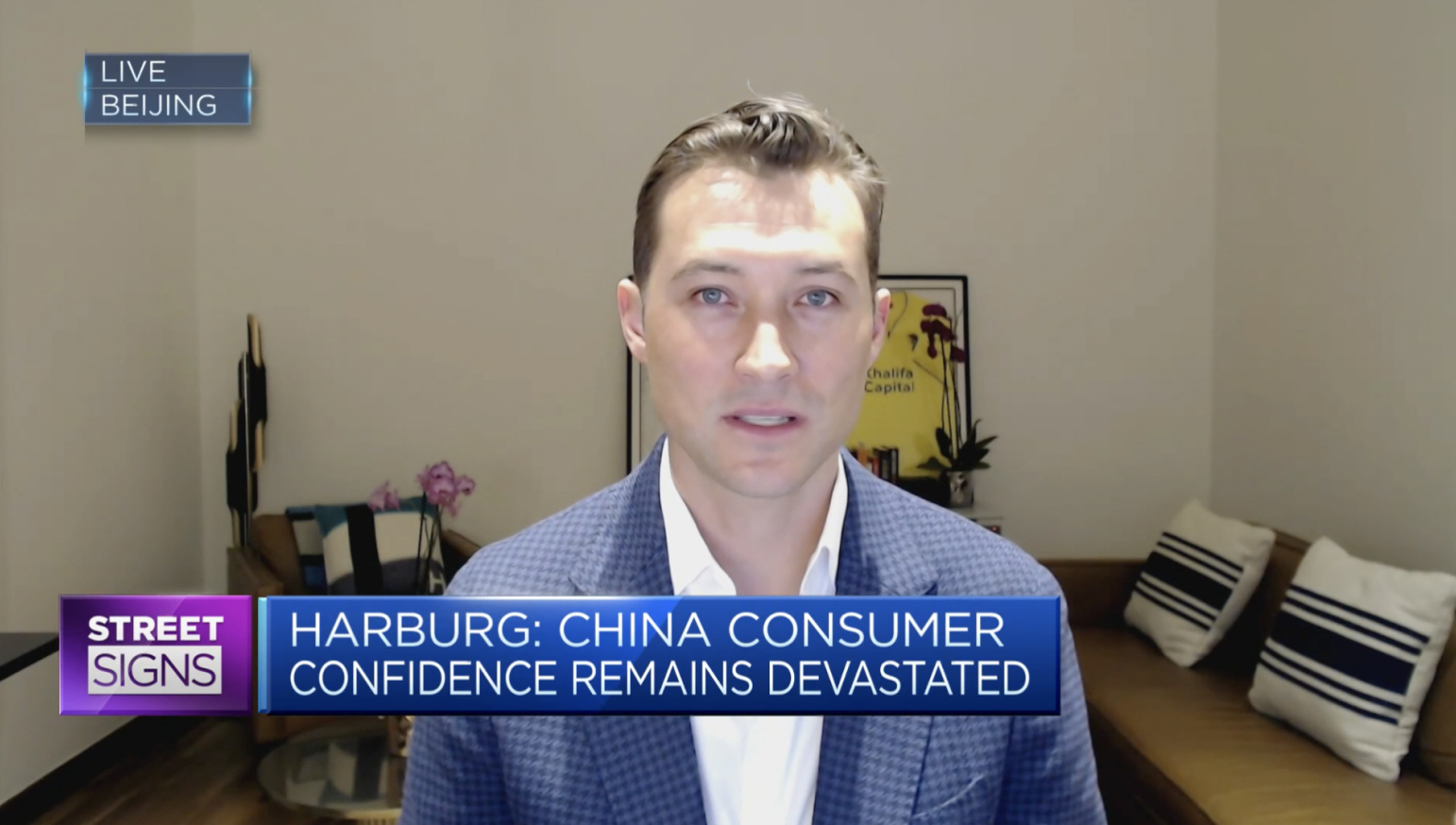

































The performance data quoted represents past performance and is no guarantee of future results. Investment return and principal value of an investment will fluctuate so that an investor's shares, when redeemed, may be worth more or less than their original cost. Current performance may be lower or higher than the performance data quoted. For the most recent month-end performance, please call 855-316-3778 or visit the Fund’s website at www.cvafunds.com. Investing involves risk, including the possible loss of principal Short-term performance, in particular, is not a good indication of the fund’s future performance, and an investment should not be made based solely on returns.
For standardized performance of the Greater China Growth ETF, click here.
Disclosures for linked news stories:
See holdings here
Note: References to other securities is not an offer to buy or sell.
Definitions for linked news stories:
A. Alpha: Excess return of an investment relative to the return of a benchmark index.
B. Basis point: One basis point is equivalent to 0.01%.
C. MSCI China Index: The MSCI China Index stands for Morgan Stanley Capital International (MSCI), and is an index used to measure equity market performance of large and mid cap representation across China A shares, H shares, B shares, Red chips, P chips and foreign listings (e.g. ADRs).
Disclosures:
Investors should consider the investment objectives, risks, charges and expenses carefully before investing. For a prospectus or summary prospectus with this and other information about the Fund, please call 855-316-3778 or visit our website at https://cvafunds.com/. Read the prospectus or summary prospectus carefully before investing.
Investing involves risks and the possible loss of principal.
FRDM: The Freedom 100 Emerging Markets ETF (the “Fund”) seeks to track the total return performance, before fees and expenses, of the Life + Liberty Freedom 100 Emerging Markets Index (the “Index”). It has a passive management style. FRDM has net assets of $632.77m as of 10/24/23 – see performance and prospectus. (Defiance team: note links for these two)
TOBAM funds are not registered for sale in the US.
Holdings are subject to change without notice. Any disclosure (such as from Bloomberg or other media source) that references the opinions expressed during the podcast are those of the guests and may not reflect those of CoreValues Alpha.
Growth Investing Risks. The Fund will invest in companies that appear to be growth-oriented. Growth companies are those that the Sub-Adviser believes will have revenue and earnings that grow faster than the economy as a whole, offering above-average prospects for capital appreciation and little or no emphasis on dividend income.
China Investing Risks. The Chinese economy is generally considered an emerging market and can be significantly affected by economic and political conditions and policy in China and surrounding Asian countries. A relatively small number of Chinese companies represent a large portion of China’s total market and thus may be more sensitive to adverse political or economic circumstances and market movements. The economy of China differs, often unfavorably, from the U.S. economy in such respects as structure, general development, government involvement, wealth distribution, rate of inflation, growth rate, allocation of resources and capital reinvestment, among others. The Public Company Accounting Oversight Board (“PCAOB”), which regulates auditors of U.S. public companies, has warned that it lacks the ability to inspect audit work and practices of PCAOB-registered accounting firms in China and Hong Kong. The PCAOB’s limited ability to oversee the operations of accounting firms in China and Hong Kong means that inaccurate or incomplete financial records of an issuer’s operations may not be detected, which could negatively impact the Fund’s investments in such companies. Under China’s political and economic system, the central government has historically exercised substantial control over virtually every sector of the Chinese economy through administrative regulation and/or state ownership. In addition, expropriation, including nationalization, confiscatory taxation, political, economic or social instability or other developments could adversely affect and significantly diminish the values of the Chinese companies in which the Fund invests. International trade tensions may arise from time to time which can result in trade tariffs, embargoes, trade limitations, trade wars and other negative consequences.
Emerging Markets Risk. Investments in securities and instruments traded in developing or emerging markets, or that provide exposure to such securities or markets, can involve additional risks relating to political, economic, or regulatory conditions not associated with investments in U.S. securities and instruments.
Non-Diversification Risk. Because the Fund is “non-diversified,” it may invest a greater percentage of its assets in the securities of a single issuer or a smaller number of issuers than if it was a diversified fund. As a result, a decline in the value of an investment in a single issuer or a smaller number of issuers could cause the Fund’s overall value to decline to a greater degree than if the Fund held a more diversified portfolio.
New Fund Risk. The Fund is a recently organized management investment company with no operating history. As a result, prospective investors do not have a track record or history on which to base their investment decisions.
Distributed by Foreside Fund Services, LLC.
Tim Chen is a Portfolio Manager at CVA Funds and a Partner at MSA, a leading fund manager investing in early stage companies across global markets.
Mr. Chen previously headed international product at Mobike, the largest micro-mobility company globally, which sold for $2.7 billion to Meituan, China's super app. Before that he led operations at Uber, ran growth at a Y-Combinator backed startup that was acquired by Block (fka Square), and worked at a long/short fundamental hedge fund. He started his career with Nomura in investment banking.
He graduated with a B.S. in Commerce from the University of Virginia.
Ben Harburg is a Portfolio Manager at CVA Funds and co-founded MSA Capital, a leading global fund manager investing in Greater China, North America, and emerging markets.
Mr Harburg previously worked for the US State Department, the US Department of Defense, Motorola (China), and started his career with the Boston Consulting Group.
He sits on the Board of Directors of the National Committee on US-China Relations and the Asian Cultural Council. He previously sat on the Board of Advisors of the Carnegie Endowment’s China Center and the Brooking Institution’s China Council.
He was a Fulbright Scholar at Ruhr-Universität Bochum, was the first native born American admitted to Tsinghua University Peoples Bank of China School of Finance elite EMBA program, and was a Neubauer Scholar at Tufts University (where he currently sits on the Board of Advisors of the School of Arts & Sciences).